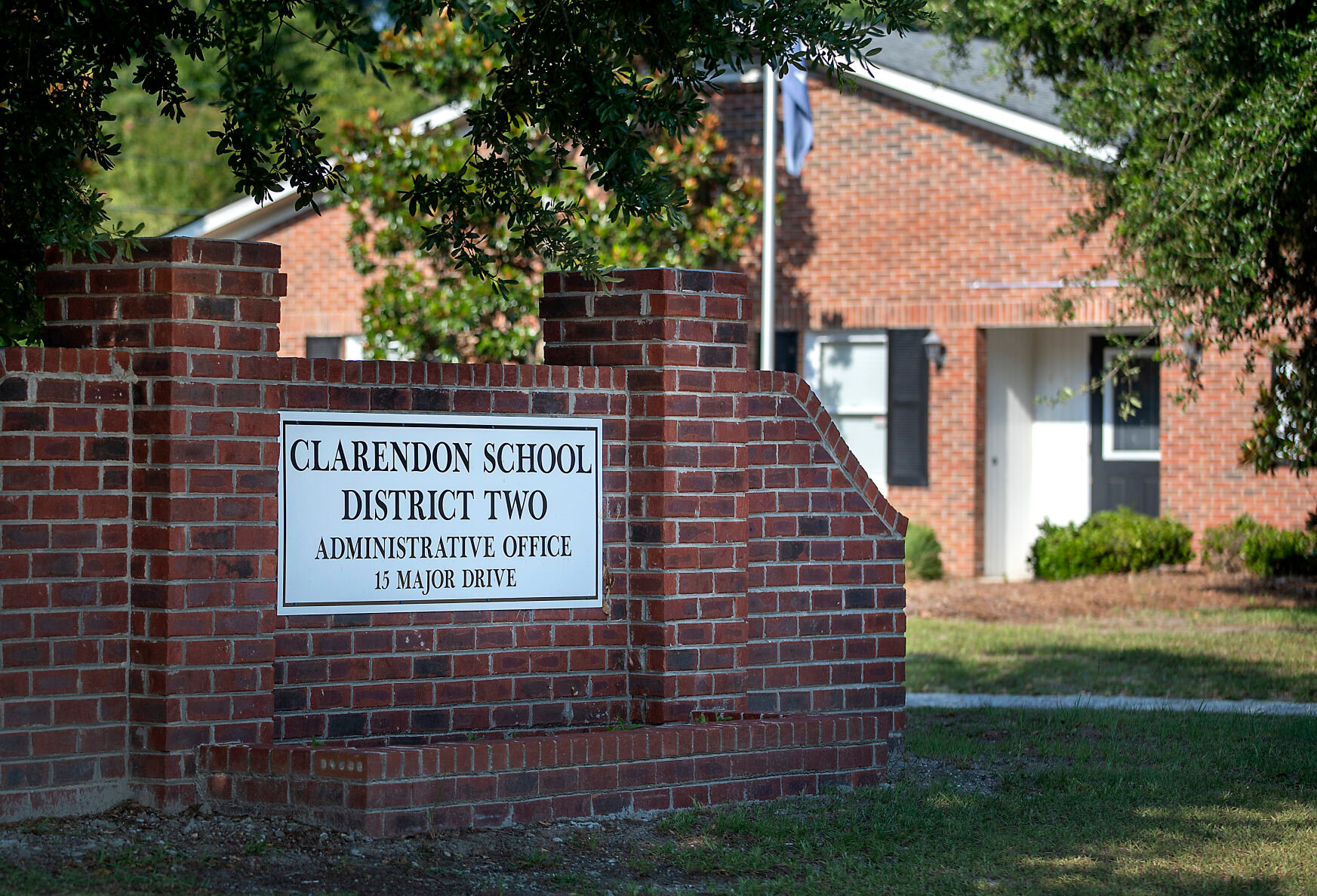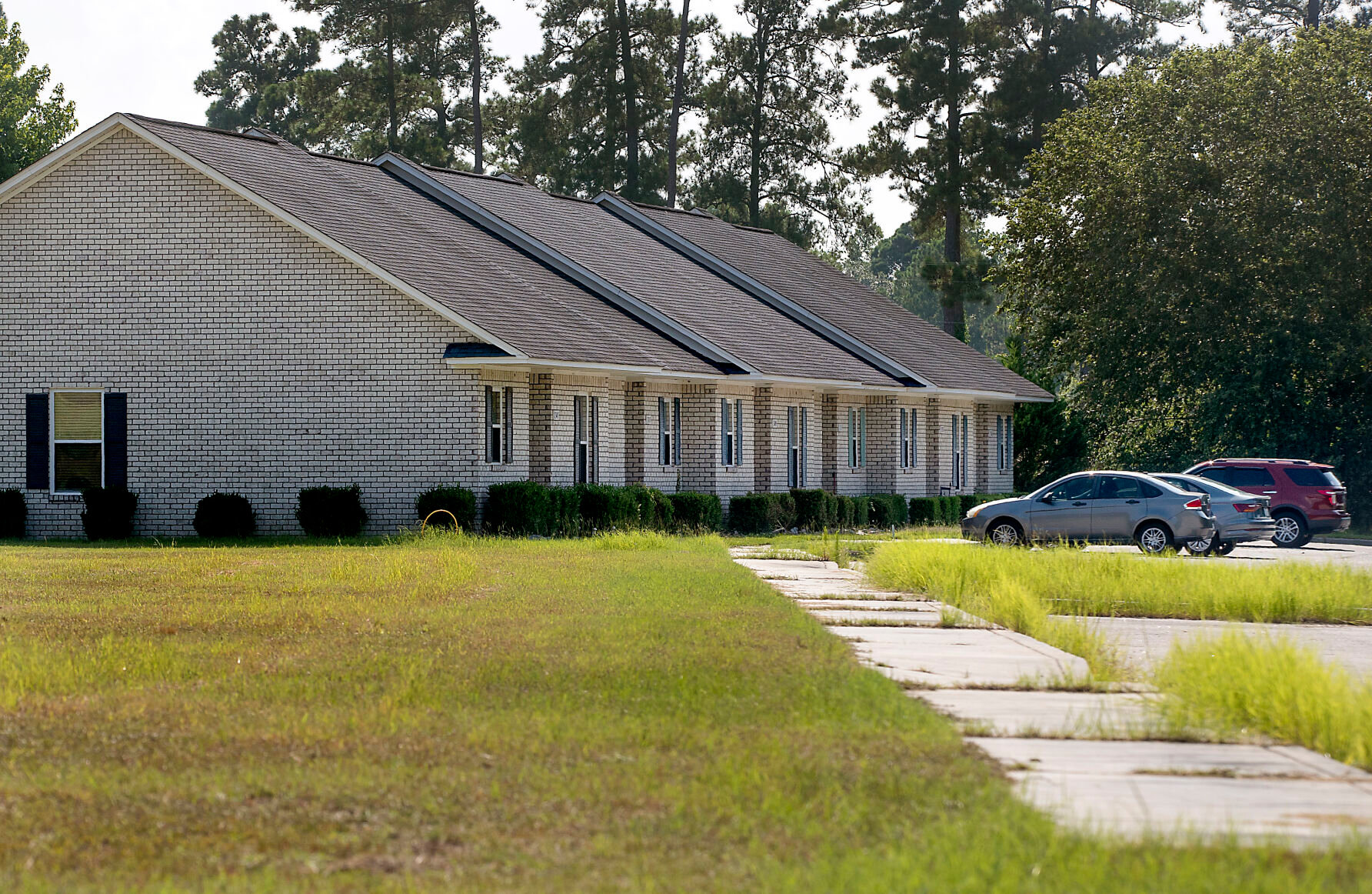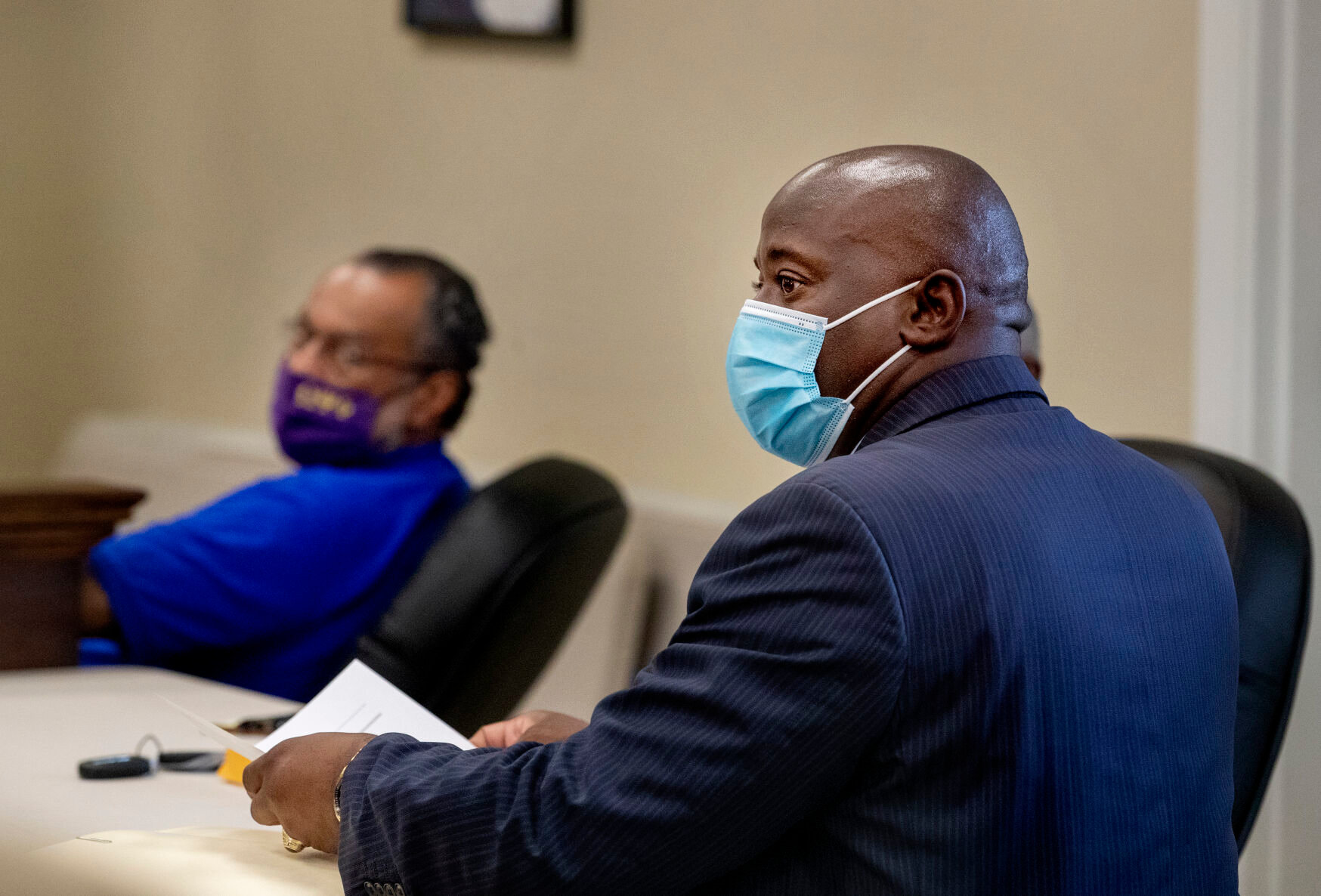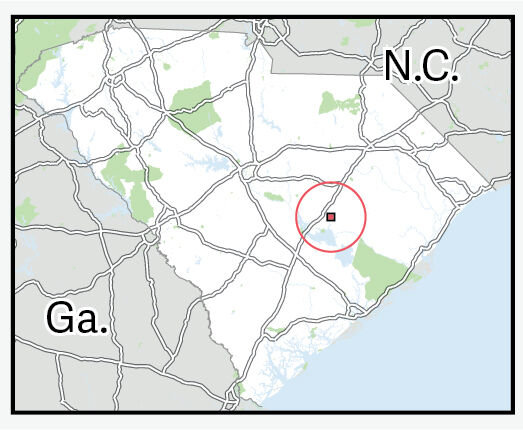Clarendon County superintendent lived rent-free in SC townhouse meant for teacher recruitment
shobbs@postandcourier.com
tmoore@postandcourier.com
This story is part of Uncovered, a yearlong project in which The Post and Courier is partnering with community newspapers across South Carolina to investigate potential abuses of power, misuses of taxpayer dollars and reports of misconduct. The Sumter Item is one of 15 news outlets participating.
---
MANNING — A South Carolina school district used state money meant to recruit teachers to buy a townhouse that its superintendent was living in — and for months, let him stay there rent-free.
In early 2020, board members of Clarendon School District 2 discussed the possibility of buying a house to lease to teachers. At the time, Superintendent Shawn Johnson suggested the property he was renting as an option.
Leaders in this district about 50 miles southeast of Columbia soon decided to buy the home, which sits on a golf course, and they let the superintendent continue to live there for five months. They asked Johnson to pay his back rent, which totaled almost $5,000, only after The Post and Courier filed a public records request earlier this year.
Clarendon 2 bought the house using grant money from a state program intended to help rural school districts recruit teachers. The district agreed to use the funding to “provide lodging for teachers.”
But when lawmakers created the $7.6 million-a-year grant initiative, they did not task anyone with monitoring how the money was spent, leaving a void of oversight. The program’s former leader said she did not check if the money was used appropriately.
“If you’ve got a superintendent freeloading for five months, their reporting system’s just not going to catch that,” said Patrick Kelly, director of governmental affairs at the Palmetto State Teachers Association.
It’s an example of how school districts in South Carolina are afforded wide latitude in their actions and often go unscrutinized, even as they are entrusted with vast sums of public money. The Post and Courier is exploring such questionable conduct and lapses in government oversight as part of its investigative series Uncovered. The newspaper is partnering with community news outlets throughout the state in this effort, particularly in areas with few watchdogs.
Board members at the time of the purchase said the intention was for Johnson to move out after the district bought the property, but the coronavirus pandemic upended those plans. One said the townhouse “slipped through the back of my mind” and acknowledged that the newspaper’s request reminded the board that the superintendent hadn’t paid rent.
Still, board members waited until six months after Johnson said he had moved out to charge him rent. They also gave the superintendent, whose salary at the time was almost $145,000, a monthly housing allowance and made it retroactive. That essentially gave him an extra payment larger than his debt to the district.
Johnson, in a recent interview, said he did not immediately make rent payments because board members did not tell him what he owed, although his lease for the house continued after the sale.
“It’s not like I didn’t give them what they told me to give them when they told me to do it,” he said. “That’s where I have the problem: That I’m wearing this cross because of their timing. And that’s not fair.”
After he left the townhouse, the property sat unoccupied. The first teacher moved in more than a year after the district purchased it.
No follow-up
For the last several years, South Carolina has put aside money for school districts with persistent teacher turnover to set up programs to keep them around.
Districts get lots of flexibility: They can use the money to secure visas for international teachers, and reimburse educators with long commutes. They can also buy homes to lease to their own teachers.
Clarendon 2 requested nearly $87,000 to do just that. Roughly one in eight teachers leave the district annually and the vast majority of its 2,600 students, who attend a handful of schools, are in poverty.
Even before the district was approved for the funding, Johnson presented properties to board members during a closed-door meeting in January 2020, according to Lyde Graham, the district’s director of operations. One of those properties was the townhouse the superintendent was living in, Graham said.
Johnson moved to the unit in June 2019, a few months after he was chosen for Clarendon 2’s top job. Previously, he worked as a superintendent for the state's smallest district, Barnwell School District 19, about 90 miles northwest of Charleston and near the Georgia border.
In March 2020, Clarendon 2 paid $85,000 to buy the townhouse, records show. The unit is almost 1,100 square feet and has two bedrooms and two-and-a-half bathrooms. It's part of a small row of homes next to the first tee of the golf course.
The superintendent’s lease continued after the purchase, Graham said.
Johnson, in interviews, said he was limited in what he could say about the board’s decision to buy the townhouse because it was discussed during a closed-door meeting. But he said its price, which fell within the amount that the district had received from the state, was a factor.
“That board could have done anything they wanted to do,” he said. “I didn’t make ‘em, I didn’t ask ‘em. None of that.”
The grant money for the home came from the Center for Educator Recruitment, Retention, and Advancement, which is charged with distributing funds to South Carolina school districts with high turnover.
Many districts that have received grant funding have seen fewer teachers leave. A group of researchers from the University of South Carolina called it a “valuable resource” in a report published last year on teacher recruitment in the state’s rural areas.
But CERRA only has about a dozen employees, so it is too small to police districts’ spending. That makes it incumbent on local leaders to be good stewards of the money, said Kelly, the teacher’s association official, who also sits on CERRA’s board.
“These kinds of examples are exactly what will cause the General Assembly to walk away from a program,” Kelly said. “That’s the last thing we can afford right now — is to lose that kind of funding for a program that’s targeted to our highest-need areas.”
Jane Turner, who stepped down as the organization’s executive director earlier this year, said she simply awarded districts grant money after they certified that it would be used for teacher recruitment. Records show Johnson signed forms agreeing the money would be used for teacher housing.
When lawmakers started the grants in 2015, they did not ask CERRA to do anything more. In fact, the legislation made no mention of oversight for districts.
“I don’t in any way follow up to make sure that they are doing what they said they were going to do,” Turner said.
‘Compassionate people’
Some board members involved in the townhouse purchase said they saw no issue with buying the home Johnson was living in.
One of them, William Ceth Land, called it an asset. He equated it to purchasing a car from a next door neighbor instead of a stranger online.
But with the property in hand, restrictions in response to the coronavirus changed teacher recruitment efforts, he said.
Arthur Moyd, another board member at the time, said he did not want to evict Johnson from the home during the pandemic.
“We are compassionate people,” Moyd said.
Both Land and Moyd, who are no longer on the Clarendon 2 board, said charging Johnson for rent was pushed aside due to more pressing matters, including the challenge of educating students virtually.
“There was nothing that anyone was trying to do under the table,” Moyd said.
The Post and Courier contacted the seven other people who were on the school board at the time the district bought the property. All of them either did not respond to requests for comment or declined to be interviewed.
After the district bought the home, the school board unanimously gave Johnson a contract extension and increased his salary to nearly $145,000, records show. He was recently selected to lead a consolidated county-wide district that opens next year.
Johnson, in an interview, said he moved out of the townhouse in September. When asked why he decided to leave, he told a reporter: “It was good during that time, but, hey, it’s time to go.”
Land said Johnson had difficulties finding a new place to live in the area.
“Ironically, by us fixing a problem for our future teachers, we created a problem for our superintendent,” Land said.
‘We knew the guy’
Moyd said a records request from The Post and Courier reminded the school board that Johnson still owed rent. But he was quick to add that board members would not have let it go unpaid.
“It would have come back to the table,” Moyd said.
Even so, Land said that charging Johnson was not an immediate concern.
“We knew the guy living there so we weren’t worried about it,” he said. “But it was good he was there, otherwise the place would have sat empty if no one was there because we just didn’t have the demand that we thought we were going to have when we purchased it.”
It is unclear why the townhouse was not offered to teachers who were already working for Clarendon 2. In an April interview, Johnson said the unit was not being used and that the district was waiting to see which teachers planned to return for the upcoming school year.
In the 2019-20 school year, Clarendon 2 had 179 teachers, records show. Their average salary was just under $53,000.
A reporter and photographer went to the townhouse recently to see if anyone was staying there. A woman at the home said her daughter lived there and worked as a teacher, before closing the door.
Afterwards, an attorney representing the district sent the reporter a no trespassing order, declaring the townhouse property and its tenant off-limits.
In March, Johnson agreed to pay the district for his time at the townhouse, at a monthly rate of $950. That was the same price he paid to live in the unit before it was purchased by Clarendon 2.
But at the same time, board members also offered him a perk: a $1,200 monthly housing stipend so Johnson could “further the District’s recruiting goals” by living nearby and staying active in the community, according to a contract amendment. The median rent in Clarendon County is about $600, according to census estimates.
On top of that, the monthly allowance was backdated to March of last year, giving Johnson a one-time payment that more than covered the unpaid rent he owed Clarendon 2. In effect, for five months in 2020, the district gave him free housing — and paid him an extra $250 a month.
It was only then, after his stipend was approved, that Johnson paid his rent, more than a year after the district bought the house.
More Articles to Read












